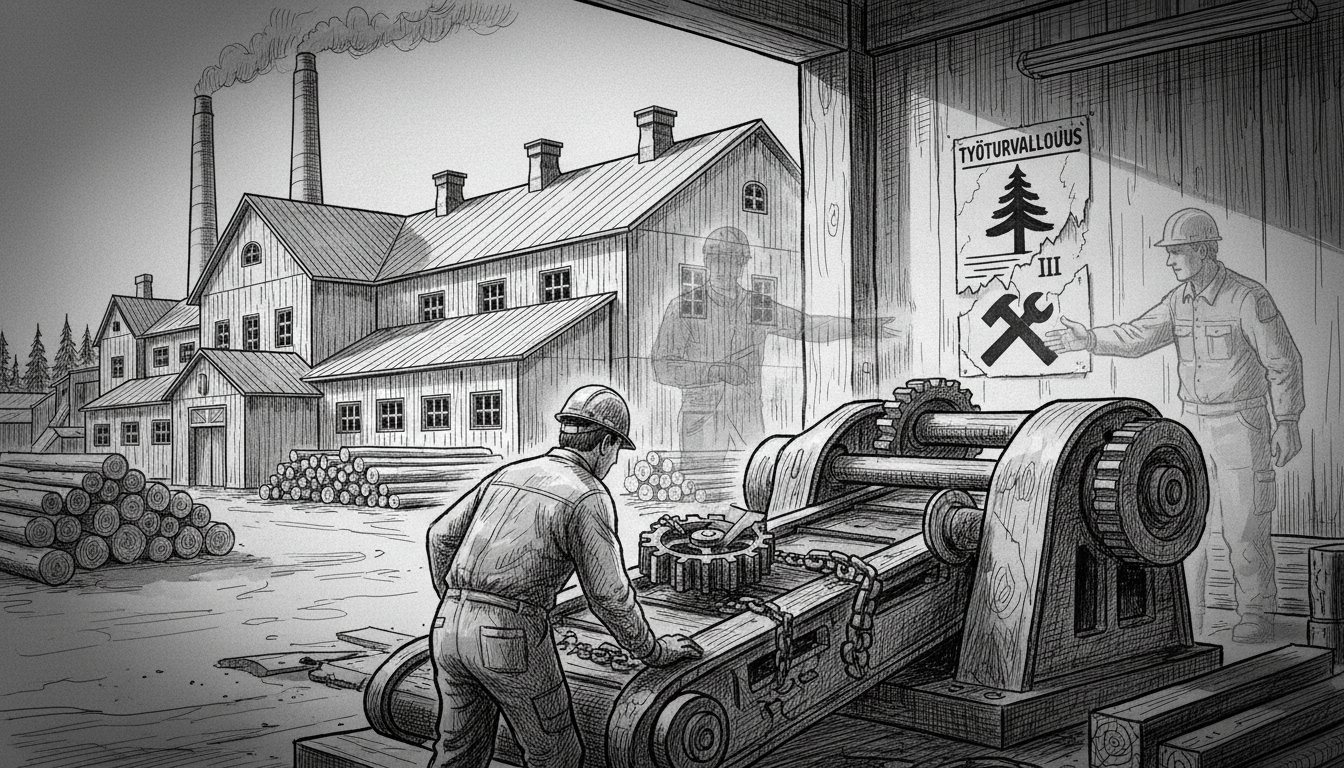A Finnish wood processing company faces its third workplace safety conviction after another employee suffered serious injuries at its Kannonkoski facility. The latest incident involved a worker who needed stitches after his arm contacted a machine blade during cleaning procedures. This marks the third time authorities have prosecuted the company for safety violations.
The injury occurred when the employee entered the danger zone of a finger joint machine to clean it. Safety barriers were positioned inside the area rather than preventing access. The machine's blade failed to stop properly due to brake malfunction, causing the injury.
A long-term employee revealed the machine had experienced repeated brake problems before the accident. Supervisors knew about the ongoing issues but took no corrective action. The worker also reported receiving inadequate training on proper machine operation.
The Central Finland District Court heard the case involving last year's March incident. Prosecutors charged Kannonpuu Oy management, a production planner, and the training supervisor with occupational safety crimes. They alleged systematic failures in risk assessment procedures.
Court documents show the company never properly analyzed hazards during maintenance, troubleshooting, or cleaning operations. The machine's brake had malfunctioned several times previously and remained defective for approximately one week before the accident. Despite known safety issues, the company took no measures to restrict access to dangerous areas.
This conviction follows two previous safety violations at the same facility. In 2021, a 17-year-old summer worker's hand was split open when it became trapped under a cutting blade. Another employee suffered a wrist injury from a circular saw blade in 2019.
Finland maintains strict workplace safety regulations, particularly in industrial sectors like wood processing. The country's Occupational Safety and Health Administration conducts regular inspections and can impose substantial fines for violations. Repeated offenses typically result in escalated penalties and increased regulatory scrutiny.
Workplace safety remains a critical concern across Nordic countries, where high labor standards are legally enforced. Finland's system relies on employer responsibility for identifying and mitigating risks. Companies must provide proper training, maintain equipment, and implement effective safety protocols.
The pattern of safety violations at this company suggests systemic problems in corporate culture and oversight. Three convictions within several years indicate either inadequate corrective measures or willful negligence. Such repeated offenses often prompt broader investigations into company-wide practices.
International companies operating in Finland should note that safety compliance receives serious legal attention. The Nordic model emphasizes worker protection through preventive measures rather than reactive solutions. Proper risk assessment and equipment maintenance form the foundation of this approach.
What consequences might the company face beyond fines? Repeated safety violations can lead to operational restrictions, loss of business licenses, or criminal charges against decision-makers. The Finnish legal system increasingly holds individual managers accountable for safety failures.
This case highlights the importance of proactive safety management in industrial operations. Proper maintenance protocols, comprehensive training, and functional safety equipment remain non-negotiable requirements. Companies ignoring these fundamentals risk both human tragedy and legal consequences.

